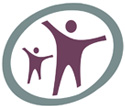What does nasal endoscopy involve?
Nasal endoscopy involves passing a flexible fibre optic tube through the nose. This is carried out in the outpatients clinic. It allows examination of nose, post nasal space (back of nose), throat, voice box and upper part of food pipe. These images can be transferred to a camera system and TV monitor. Most children tolerate this very well. The nose is usually sprayed with a local anaesthetic cum nasal decongestant. An experienced paediatric nurse holds the child during the procedure.
Does the patient need to starve for this examination?
No. For babies, it is better to stop feeding one hour before the procedure.
Does this involve a general anaesthetic?
No.
What are the advantages of nasal endoscopy?
Nasal endoscopy helps the Ear, Nose and Throat specialist to examine the upper aerodigestive tract with more precision.
Nasal blockage, snoring and mouth breathing are common problems in children and adults.
In children, the most common cause for above symptoms is enlarged adenoids. The other causes include rhinitis (inflammation of lining of nose), sinusitis and foreign body (one sided nasal symptoms). Nasal endoscopy helps to differentiate between these causes as treatment is different for each of them. In most cases it helps to avoid X-rays, scans and unnecessary general anaesthetic.
Nasal endoscopy also helps in diagnosing vocal cord problems and tumours of upper aerodigestive tract.
Any precautions after nasal endoscopy?
One should not eat or drink for 20 minutes after the nose spray. The nose spray contains a local anaesthetic and hence it numbs the throat. Consumption of hot food or drink can cause some thermal damage to throat while it is numb.
How has nasal endoscopy changed ENT practice for specialists?
Before arrival of nasal endoscopy, children had to undergo x-rays, scans and general anaesthetic for diagnosing the above conditions. Also instances where patients have been anaesthetised for adenoidectomy and no significant adenoid was seen have occurred. A simple nasal endoscopy in clinic could have avoided a general anaesthetic in the above mentioned child.
Any side effects?
Nasal endoscopy is a very safe procedure. In case of paediatric nasal endoscopy, it is better to have a paediatric nurse in clinic. Sometimes, it can cause very minimal blood stained nasal secretions which doesn't require any intervention.
What is the procedure code for insurance purposes?
E2500.






























